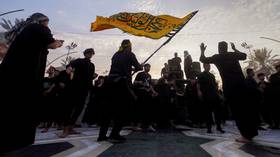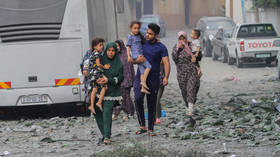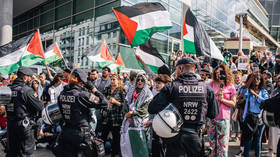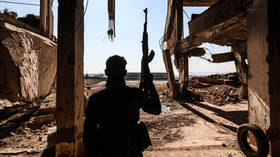Revenge delayed: Why is Iran in no hurry to retaliate against Israel?
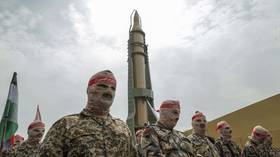
The assassination of Ismail Haniyeh in Tehran at the end of July has dramatically escalated the tension between Iran and Israel, which have been on the brink of a full-scale war for several decades.
In 2024, Iran faced a series of major challenges: a large terrorist attack in Kerman at the grave of General Qasem Soleimani; an attack on the Iranian consulate in Damascus which killed 11 diplomats and two high-ranking Islamic Revolutionary Guard Corps (IRGC) generals; the tragic deaths of President Ibrahim Raisi and Foreign Minister Hossein Amir-Abdollahian in a helicopter crash; and finally, the assassination of the leader of the radical Hamas movement Ismail Haniyeh in the center of Tehran.
All of this forces Iran’s political leadership to take tougher and more radical measures in order to prove both to its own people and to the world that this is not the way to “talk” with Iran.
Ismail Haniyeh came to Tehran to attend the inauguration ceremony of Iran’s new president, Masoud Pezeshkian. During his inaugural speech, Pezeshkian said that Iran is ready to participate in negotiations in order to reduce tensions with the West. Pezeshkian also added that he wants to normalize Iran’s economic relations with other countries and will strive towards this despite sanctions. Such statements were rather expected since Pezeshkian is a classic representative of Iranian reformist forces and political circles which advocate a more moderate foreign policy and a pragmatic political course.
However, in less than 24 hours, the new president’s statements had become irrelevant. The assassination of Ismail Haniyeh has not only demonstrated that the opponents of Hamas are determined to take extreme measures, but has shown that there are no “red lines” for them when it comes to Iran.
For the past month, the whole world has been wondering what Iran’s response will be and whether there will be a response at all. Western reports have created a certain sense of tension since Israel’s subsequent reaction depends on Iran’s response, which means that the threat of a full-scale war is still relevant.
On the one hand, by its ominous silence, Iran has forced Israel to resort to extreme security measures and close its airspace. Tehran believes that the expectation of a response is also part of the punishment, because tension in Israel continues to rise.
On the other hand, the White House has reassured itself, insisting that through intermediaries, it has convinced Tehran to abandon the idea of attacking Israel. In its usual manner full of pathos, the Biden administration has declared that Iran would face serious consequences if it decided to strike Israel. In fact, Washington does not benefit from the escalation of the conflict – in light of the upcoming US elections, it does not want to give Donald Trump a chance to accuse the Democrats of having failed to prevent an attack on their main ally in the region. Therefore, US Secretary of State Antony Blinken and Biden’s national security adviser Jake Sullivan are ready to negotiate with anyone, even Iranian Supreme Leader Ayatollah Ali Khamenei, in order to prevent a scenario that would be unfavorable for them.
Meanwhile, Iranian officials refuse to say when and how they will strike Israel, only saying that they will respond “sooner or later.” Over the past month, the Iranian president has held telephone talks with Russian President Vladimir Putin, French President Emmanuel Macron, British Prime Minister Keir Starmer, and Turkish President Recep Tayyip Erdogan. In the course of these conversations, Pezeshkian focused on security issues and said that Iran has every reason to respond and avenge the death of the Hamas leader. The Iranian side is outraged not so much by the assassination of Ismail Haniyeh as such, as by the fact that Israel dared to take such an audacious and arrogant step.
Meanwhile, Israel has not officially acknowledged responsibility for what happened in order to justify itself in the future, should Iran demonstrate any aggression towards it. Now, Tehran is taking a break – and there is a reason for that. Against the background of negotiations in Qatar and Egypt between representatives of Hamas and Israel, Iran’s harsh response can only make things worse, and clearly, the situation will not be favorable for Tehran. Iran’s top political leadership found itself in a very difficult situation. On the one hand, certain geopolitical realities cannot be ignored; on the other hand, Iran cannot compromise its authority, especially with more and more people inside the country asking uncomfortable questions. This does not mean that society wants bloodshed and war, but Iranians are quite patriotic and believe that it’s time to put an end to all these “slaps in the face.”
Iran has difficult relations with its allies – particularly proxy groups which loyally guard Tehran’s interests in the region. A few days ago, the Kuwaiti edition of Al-Jarida reported that Iran’s relations with its allies have deteriorated because of Israel. The media notes that Tehran has provoked the anger of Hezbollah by saying that it’s necessary to be patient about avenging Israel for the murders of Ismail Haniyeh and Fuad Shukr – one of the senior military officials of Hezbollah. At a meeting of the representatives of pro-Iranian forces in Tehran, representatives of the IRGC demanded their allies demonstrate restraint regarding Israel – at least while negotiations on a ceasefire in Gaza are ongoing. The disagreement turned into an argument, and some delegates allegedly left the meeting quite angry. The meeting was attended by representatives of Hezbollah, Hamas, Islamic Jihad, Yemen’s Houthis (the Ansar Allah movement), and some smaller Iraqi groups.
Hezbollah believes that the only way to achieve a ceasefire in Gaza and peace in the entire region is to use force against Israel. They believe it is time to open all fronts, directly attack Israel and confront anyone who decides to defend it, including US troops and the Arab countries. Tehran’s allies speak in favor of large-scale and long-term military operations aimed at destroying Israeli infrastructure, security systems, military and economic facilities, as well as Israel’s civilian and residential areas. In their opinion, this will force Israelis to live in shelters for a long time, and they will experience the same challenges as the residents of Gaza.
Moreover, representatives of Hezbollah stated that the current situation cannot be ignored, and that they can independently decide to attack Israel without coordinating their actions with Iran. Hezbollah also said that after the Israeli attack on the southern suburbs of Beirut, it should attack Haifa and Tel Aviv. Moreover, Hezbollah is considering expanding the goals of its possible military operation and attacking other Israeli cities, even if this leads to casualties among civilians. Yemen’s Houthis supported Hezbollah’s position.
A source in the IRGC said that the Iranian side made it clear that such a scenario is quite risky and will only serve the interests of Israel. He noted that the Iranians offered to negotiate with Israel on the principle of “an eye for an eye” – i.e., if one of the leaders of the Axis of Resistance is killed, an Israeli official must be killed in return. To this, Hamas representatives who were at the meeting in Tehran allegedly replied, “If Iran is ready to accept the consequences of the assassination of Israeli Prime Minister Benjamin Netanyahu in exchange for the murder of Haniyeh, then Hamas will support this policy, but if Iran’s goal is to kill lower-level figures, the movement will not agree with this.” Following the meeting and the heated dispute in Tehran, fears arose that its allies might launch attacks against Israel without coordinating their actions with Iran, presenting it as a fait accompli, as Hamas did on October 7, 2023, but this time with even more dire consequences.
The situation has escalated so much that the US appealed to Türkiye and other regional allies that have ties with Iran to convince Tehran to reduce tensions in the Middle East. Ankara has repeatedly stated that it is doing everything in its power to prevent a conflict – otherwise a catastrophe may occur which will certainly affect all regional players and lead to unpredictable results. In other words, this time, no one will be able to just sit and watch from the sidelines.
The Iranian authorities face a difficult choice: on the one hand, Iran risks entering a major war with unpredictable consequences, but on the other hand, it needs to preserve its dignity and cannot allow Israel to have the last word. Tehran also needs to maintain control over its proxy forces in the region, which has become quite difficult due to growing contradictions. Currently, the main internal political struggle in Iran is between the conservative forces that control the military, and the clergy and reformers, who are strengthening their influence in the government.
Although Iranian President Masoud Pezeshkian has threatened revenge against Israel, he expects that the situation will not escalate into a hot war. It’s not that Pezeshkian or others in Iran are afraid of Israel and the US. Of course, everyone in Iran is aware that the enemy is well armed and the Iranians will have a hard time in case of war. But there is one important question: what will Iran get from this war? After all, it is obvious that Israel is trying to pull Iran into the war, and if this happens, Israeli Prime Minister Benjamin Netanyahu will achieve his goal of uniting society around him and strengthening his position; he will also involve the US in the war, causing serious problems for the Biden administration.
As for Iran, it doesn’t really want to fight – it needs to optimize the economic situation in the country, improve living conditions, continue the process of rearmament, and expand ties with its neighbors in the region by joining organizations like the SCO and BRICS, thereby weakening Western efforts to isolate the Islamic Republic. Put together, all this spells big problems for Israel. In Israel itself, things are not going that well, which is evident from the fact that Netanyahu is taking his time and counting on Trump’s victory in the November elections. But there is still plenty of time until November – or actually, January, when Trump may (or may not, no one knows for sure) take office as president – and anything can happen in five months. But at the same time, Israel continues to underestimate Iran and overestimate its own power.
The clock is ticking, and Iran’s threats may never move beyond words. However, the longer Tehran delays its response, the more truth there is to the proverb: “you don’t swing your fists after a fight.” In other words, what is done, is done.
